Research - (2022) Volume 10, Issue 8
Identification and Analysis of Dentists Service Quality in Saudi Arabia
*Correspondence: Badr Majed Othman, Department of Periodontology, Faculty of Dentistry, King Abdulaziz University, Saudi Arabia, Email:
Abstract
Objectives (background): Saudization has been gradually introduced in the private sector by the Ministry of Human Resources and Social Development to reduce unemployment. Vision 2023 goals include lowering the unemployment rate from 11.6% to 7% and increasing the private sector’s contribution from 40% to 65% of gross domestic product by 2030. The SERVQUAL model is used to assess customer perceptions of service quality and retail organizations through five dimensions: tangibility, reliability, responsiveness, assurance, and empathy. This study aims to measure the effect of quality dimensions on patient willingness to be treated by and satisfaction with Saudi dentists. The focus of this research is to determine which quality dimensions affect patients being treated by Saudi dentists the most. This research will provide strategic operational objectives to enhance service quality in dental market. Methods: This is a cross-sectional study with a random sample. A total of 478 participants (306 male and 172 female) were included in the study. An electronic questionnaire was formulated with a scale from 0 to 5 using the servqual model to tackle reliability, assurance, accountability, empathy, and treatment quality of Saudi dentists. The dimensions were measured to determine which quality dimensions affect overall satisfaction and willingness to visit Saudi dentists. Results: Results were analyzed by the statistical Package for Social Sciences (SPSS, version 21, Chicago, Illinois, USA). The weighted scale was 3.95, 3.93, 3.83, 3.22, 3.89 out of 5 for reliability, assurance, accountability, empathy, and treatment quality of Saudi dentists respectively. Furthermore, the weighted scale was 3.9 and 3.86 for the overall satisfaction and willingness to visit Saudi dentists respectively. Conclusion: - Participants strongly agree with the reliability, assurance, accountability, and treatment quality of Saudi dentists, while the empathy dimension showed a significant effect on participants’ perception of satisfaction and willingness to visit these dentists.
Keywords
Saudization, Dentists, Servqual model
Introduction
Saudization has been gradually introduced in the private sector by the Ministry of Human Resources and Social Development to reduce unemployment. Lowering the unemployment rate from 11.6% to 7% and increasing the private sector’s contribution from 40% to 65% of the gross domestic product are goals by 2030 [1]. The private sector is supporting the move to working with the governmental sector to grow the Saudi economy.
However, hiring process is challenging. Therefore, employees must prove their professionalism, passion, and commitment to meet private sector requirements to retain their job. Most importantly, their service quality must satisfy customers, as customer feedback is very important for the success of any business. Customer feedback indicates if improvements needed for employees and businesses.
Service quality should be analyzed by measurable dimensions for valid outcomes. The SERVQUAL model is used to assess customer perceptions of service quality and retail organizations through five dimensions [2]: Tangibility, reliability, responsiveness, assurance, and empathy. Tangibility is the actual and physical appearance of the facility or person. Reliability is the ability of the person to accomplish the promised service precisely. Responsiveness is their willingness to serve customers with the required service promptly. Assurance is the knowledge and courtesy that allows communication with trust and confidence. Empathy is the level of caring and attention paid to the customers [3].
One private sector facing many challenges is the dental sector. The Ministry of Health, The Ministry of Human Resources and Social Development, and The Saudi Commission of Health Specialties have made huge efforts to introduce Saudi dentists in the market. Saudi dentists have knowledge, education, personality, and model ethical behavior. However, patient feedback can provide a means for improvement. This study aims to measure the effect of the quality dimensions on patients’ willingness to use and satisfaction with Saudi dentists. The focus of this research is to tackle which quality dimensions most affect patients being treated by Saudi dentists. This research will help provide strategic operational objectives to enhance service quality in Saudi dental market.
Materials and Methods
This cross-sectional study used a random sample of 511 patients. Among them, 33 participants were excluded due to a lack of information, incomplete responses, or never having visited Saudi dentists before. A total of 478 participants (306 males and 172 females) were included in the study. An electronic questionnaire was formulated with a scale from 0-5 using the SERVQUAL model to measure reliability, assurance, accountability, empathy, treatment quality, patient satisfaction, and patient willingness to use Saudi dentists. On this scale, 0 was the lowest and 5 was the highest agreement with the statements demonstrated in Table 1. The questionnaire contained information about sociodemographic and other relevant characteristics, including age, gender, and educational level. The questionnaire was sent electronically to patient emails, smartphones, and social media accounts. The statistical Package for Social Sciences (SPSS, version 21, Chicago, Illinois, USA) was used for data analysis and data processing. The characteristics of variables were described using a frequency distribution. The chi-square test was used to assess associations between categorical variables. A P-value of less than 0.05 was considered statistically significant.
| Scale | Level of agreement |
|---|---|
| N/A | Not Applicable |
| 0 | Not at all |
| 1 | Agrees with preservation |
| 2 | Agrees sometime |
| 3 | Agrees |
| 4 | Agrees most of the time |
| 5 | Agrees strongly |
Table 1: The agreement scale.
Results
This study was composed of 478 subjects among them 306 were male and 172 were female. The ages ranged from 16 to 70 years and the mean age was 36. The socio-demographic data showed that the number of participants were 424, 40, 10, 4, for graduate and above, high, intermediate, primary school respectively (Table 2, Figure 1a and Figure 1b).
| Gender | No | % |
|---|---|---|
| Male | 306 | 70.71 |
| Female | 172 | 29.29 |
| Education level | ||
| Primary | 4 | 0.84 |
| Intermediate | 10 | 2.09 |
| High school | 40 | 8.37 |
| Graduate and above | 424 | 88.7 |
Table 2: Socio-demographic details of the participants.
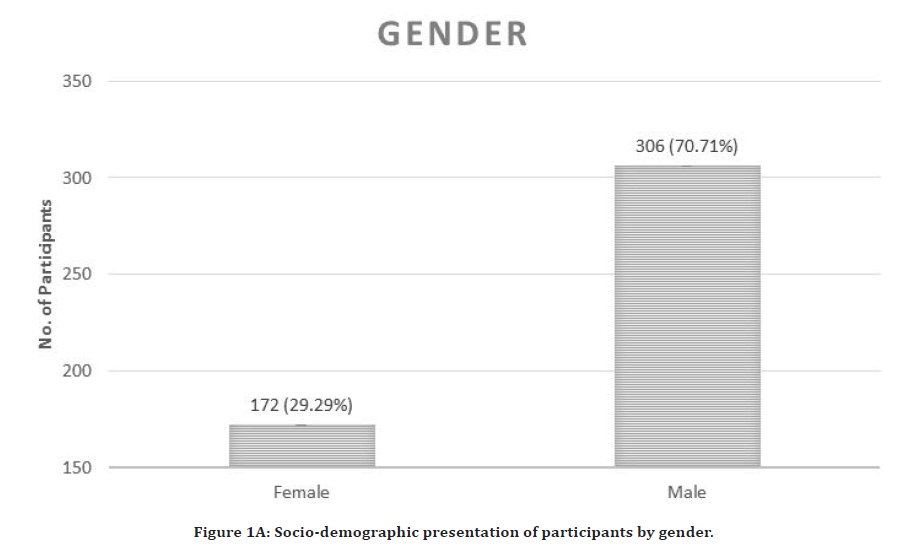
Figure 1a. Socio-demographic presentation of participants by gender.
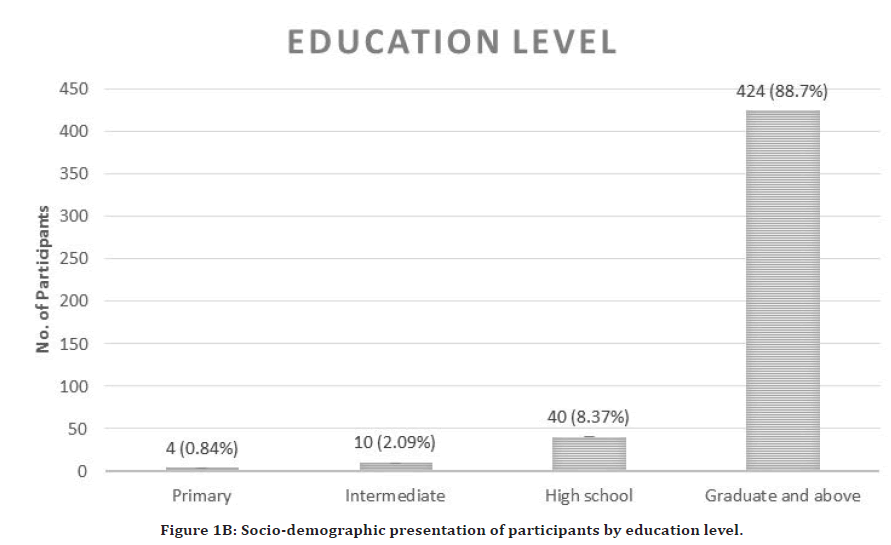
Figure 1b. Socio-demographic presentation of participants by education level.
On a scale from 0-5, participants agreed that Saudi dentists are reliable with a score of 3.95/5 (79%). This represents a significantly higher number of participants who strongly agree or agree most of the time compared to all other scale grades (P<0.05) (Table 3 and Figure 2). Using a 0-5 scale, the weighted average assurance or confidence of patients in Saudi dentists was 3.93/5 (78.6%). This represents a significantly higher number of participants who strongly agree or agree most of the time when compared to all other scale grades (P<0.05) (Table 4 and Figure 3). The weighted average accountability of Saudi dentists was 3.83/5 (76.6%) on a scale of 0-5. This represents a significantly higher number of participants who strongly agree or agree most of the time compared to all other scale grades (P<0.05) (Table 5 and Figure 4). On a 0-5 scale, participants graded the empathy of Saudi dentists at a weighted average of 3.22/5 (64.4%). There was no significant difference in participants who strongly agree or agree most of the time when compared to all other scale grades (P>0.05) (Table 6 and Figure 5). On a 0-5 scale, participants rated the treatment quality of Saudi dentists as a weighted average of 3.89/5 (77.8%). This represented a significantly higher number of participants who strongly agree or agree most of the time as compared to all other scale grades (P<0.05 and Table 7 and Figure 6). On a scale of 0-5, the participants’ overall satisfaction level regarding Saudi dentists was 3.9/5 (78%). This was a significantly higher number of participants who strongly agree or agree most of the time compared to all other scale grades (P<0.05) (Table 8 and Figure 7). On a 0-5 scale, the participants’ weighted average willingness to visit Saudi dentists was 3.86/5 (77.3%). This represents a significantly higher number of participants who strongly agree or agree most of the time when compared to all other scale grades (P<0.05) (Table 9 and Figure 8). There was no significant difference in four out of five dimensions when compared with overall patient satisfaction (P>0.05). The empathy dimension showed a significant influence on patient satisfaction (P=0.001) (Table 10 and Figure 9). There was no significant difference in four of five dimensions regarding patient willingness to visit Saudi dentists (P>0.05), but empathy showed a significant influence (P=0.003) (Table 11 and Figure 10). Gender had no significant impact in all five dimensions and satisfaction and willingness to visit Saudi dentists (P>0.05) (Table 12 and Figure 11).
| Scale | Level of agreement | Participant feedback |
|---|---|---|
| N/A | Not Applicable | 4.43% |
| 0 | Not at all | 3.45% |
| 1 | Agrees with preservation | 2.96% |
| 2 | Agrees sometime | 13.79% |
| 3 | Agrees | 10.34% |
| 4 | Agrees most of the time | 29.06 |
| 5 | Agrees strongly | 35.96% |
| Weighted Average Scale | 3.95 | |
Table 3: Participant feedback regarding the reliability of Saudi dentists.
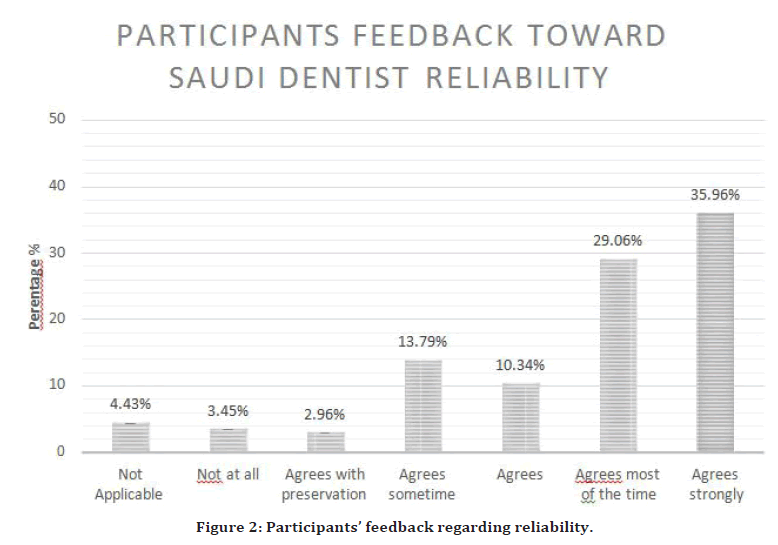
Figure 2. Participants’ feedback regarding reliability.
| Scale | Level of agreement | Participant feedback |
|---|---|---|
| N/A | Not Applicable | 3.94% |
| 0 | Not at all | 4.93% |
| 1 | Agrees with preservation | 3.94% |
| 2 | Agrees sometime | 9.36% |
| 3 | Agrees | 12.81% |
| 4 | Agrees most of the time | 29.06% |
| 5 | Agrees strongly | 35.96% |
| Weighted Average Scale | 3.93 | |
Table 4: Participant feedback regarding the assurance of Saudi dentists.
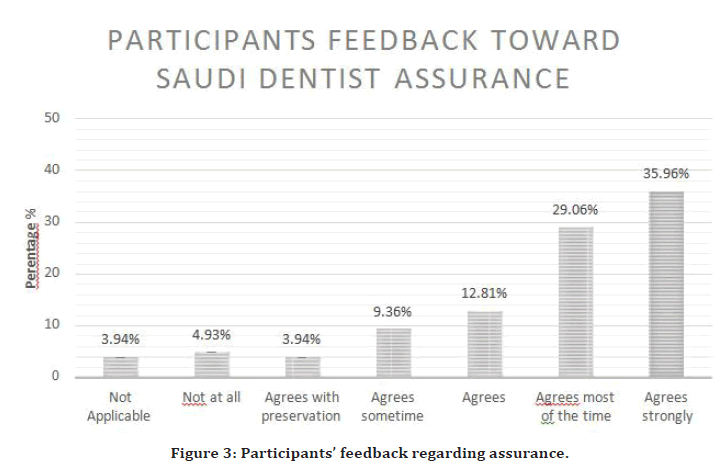
Figure 3. Participants’ feedback regarding assurance.
| Scale | Level of agreement | Participant feedback |
|---|---|---|
| N/A | Not Applicable | 3.94% |
| 0 | Not at all | 5.91% |
| 1 | Agrees with preservation | 6.90% |
| 2 | Agrees sometime | 10.34% |
| 3 | Agrees | 9.85% |
| 4 | Agrees most of the time | 26.60% |
| 5 | Agrees strongly | 36.45% |
| Weighted Average Scale | 3.83 | |
Table 5: Participant feedback regarding the accountability of Saudi dentists.
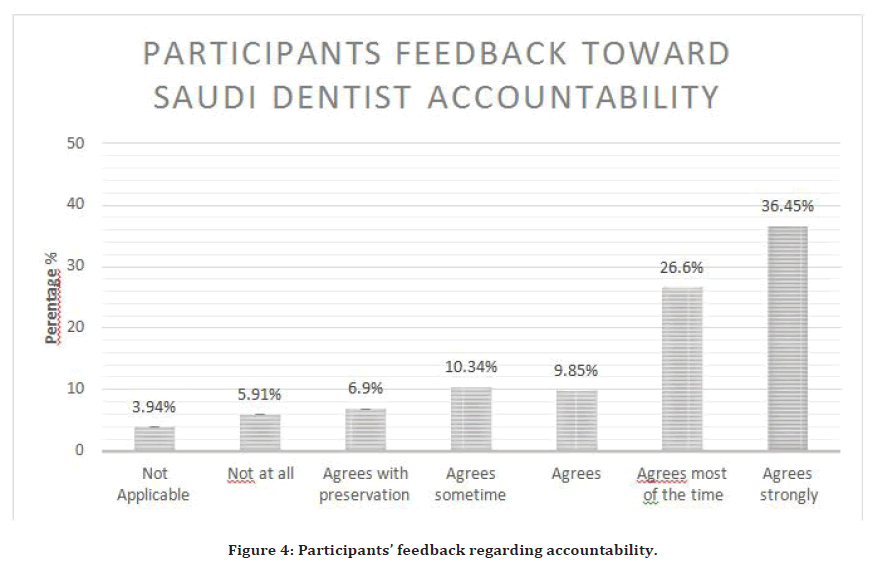
Figure 4. Participants’ feedback regarding accountability.
| Scale | Level of agreement | Participant feedback |
|---|---|---|
| N/A | Not Applicable | 2.60% |
| 0 | Not at all | 4.90% |
| 1 | Agrees with preservation | 10% |
| 2 | Agrees sometime | 15.50% |
| 3 | Agrees | 19.50% |
| 4 | Agrees most of the time | 25% |
| 5 | Agrees strongly | 22.50% |
| Weighted Average Scale | 3.22 | |
Table 6: Participant feedback regarding the empathy of Saudi dentists.
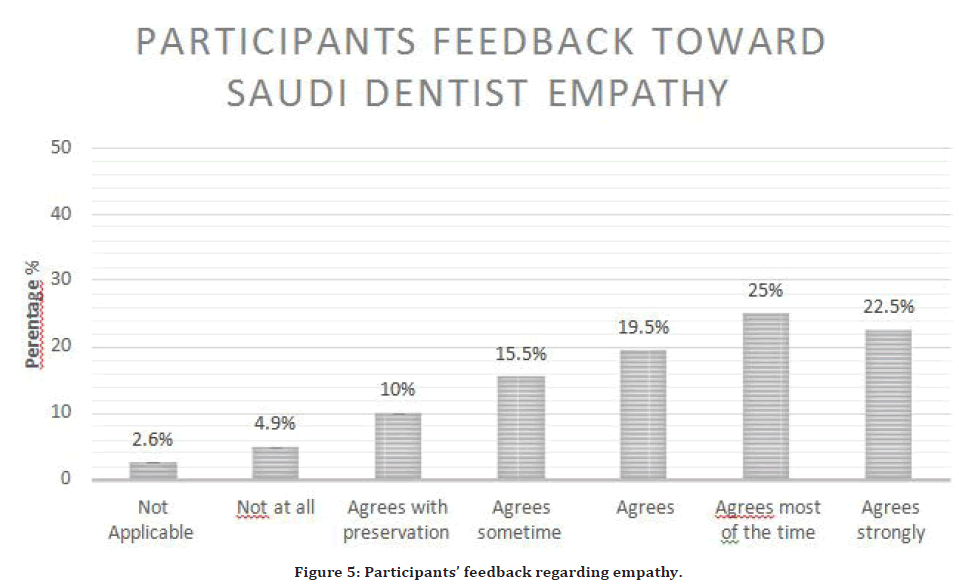
Figure 5. Participants’ feedback regarding empathy.
| Scale | Level of agreement | Participant feedback |
|---|---|---|
| N/A | Not Applicable | 4.93% |
| 0 | Not at all | 3.94% |
| 1 | Agrees with preservation | 6.90% |
| 2 | Agrees sometime | 7.39% |
| 3 | Agrees | 13.30% |
| 4 | Agrees most of the time | 30.54% |
| 5 | Agrees strongly | 33% |
| Weighted Average Scale | 3.89 | |
Table 7: Participant feedback regarding the quality of Saudi dentists.
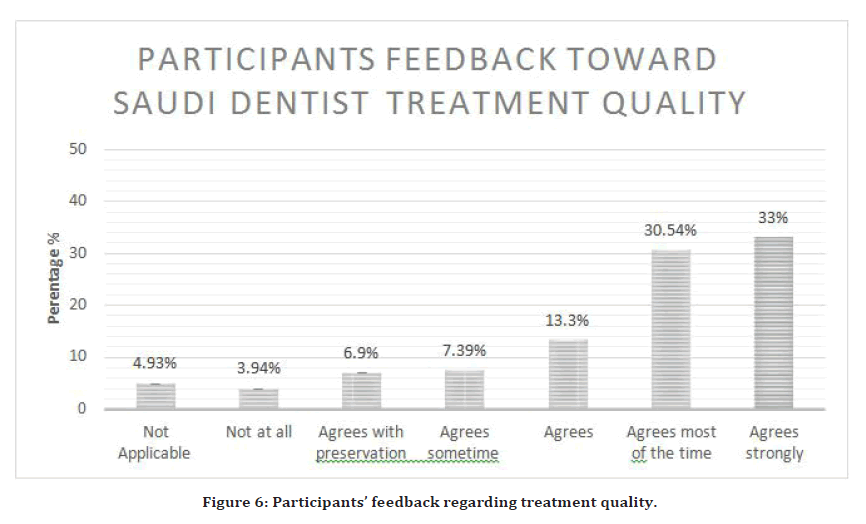
Figure 6. Participants’ feedback regarding treatment quality.
| Scale | Level of agreement | Participant feedback |
|---|---|---|
| N/A | Not Applicable | 5% |
| 0 | Not at all | 5% |
| 1 | Agrees with preservation | 4.50% |
| 2 | Agrees sometime | 8.50% |
| 3 | Agrees | 15% |
| 4 | Agrees most of the time | 27% |
| 5 | Agrees strongly | 35% |
| Weighted Average Scale | 3.9 | |
Table 8: Participant feedback regarding satisfaction with Saudi dentists.
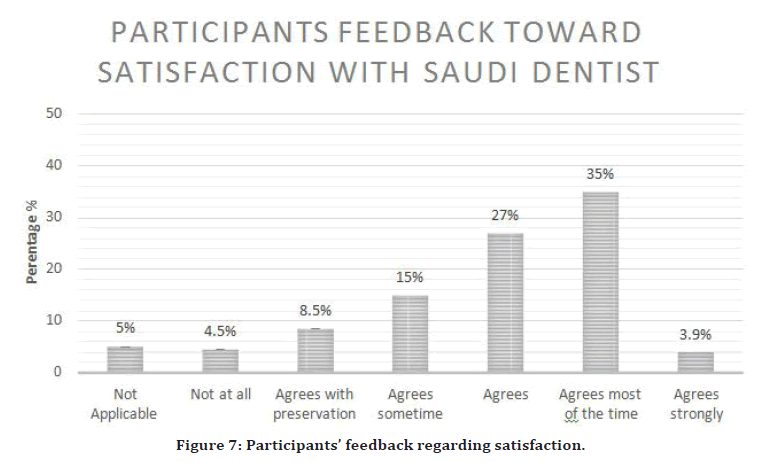
Figure 7. Participants’ feedback regarding satisfaction.
| Scale | Level of agreement | Participant feedback |
|---|---|---|
| N/A | Not Applicable | 2.50% |
| 0 | Not at all | 6.50% |
| 1 | Agrees with preservation | 3% |
| 2 | Agrees sometime | 11% |
| 3 | Agrees | 15.50% |
| 4 | Agrees most of the time | 24% |
| 5 | Agrees strongly | 37.50% |
| Weighted Average Scale | 3.86 | |
Table 9: Participant feedback regarding willingness to visit a Saudi dentist.
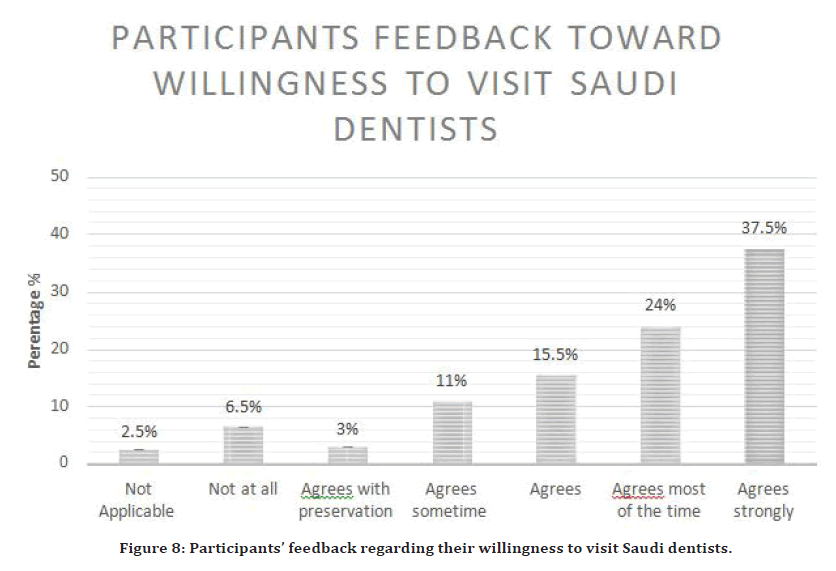
Figure 8. Participants’ feedback regarding their willingness to visit Saudi dentists.
| Dimension | Weighted Average Scale, 0-5 | Satisfaction weighted scale average, 0-5 | P-value |
|---|---|---|---|
| Reliability | 3.95 | 3.9 | 0.65 |
| Assurance | 3.93 | 0.78 | |
| Accountability | 3.83 | 0.6 | |
| Empathy | 3.22 | 0.001 | |
| Treatment Quality | 3.89 | 0.94 |
Table 10: Dimensions that influence patient satisfaction.
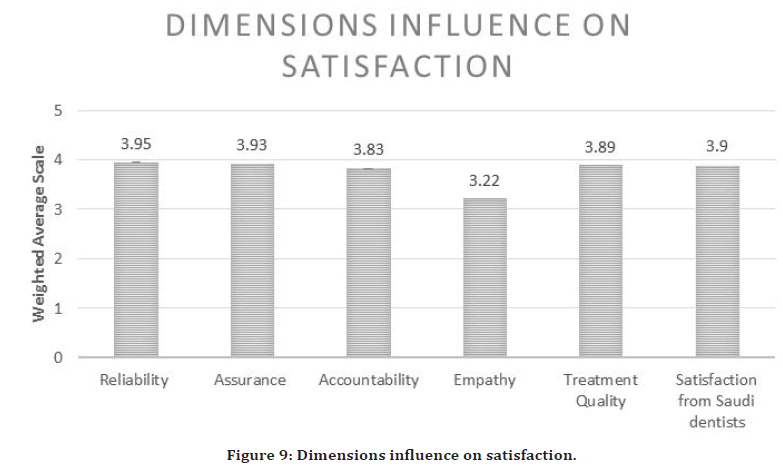
Figure 9. Dimensions influence on satisfaction.
| Dimension | Weighted Average Scale, 0-5 | Patient willingness to visit Saudi dentists weighted scale, average 0-5 | P-value |
|---|---|---|---|
| Reliability | 3.95 | 3.86 | 0.48 |
| Assurance | 3.93 | 0.6 | |
| Accountability | 3.83 | 0.78 | |
| Empathy | 3.22 | 0.003 | |
| Treatment Quality | 3.89 | 0.85 |
Table 11: Dimensions that influence patient willingness to visit Saudi dentists.
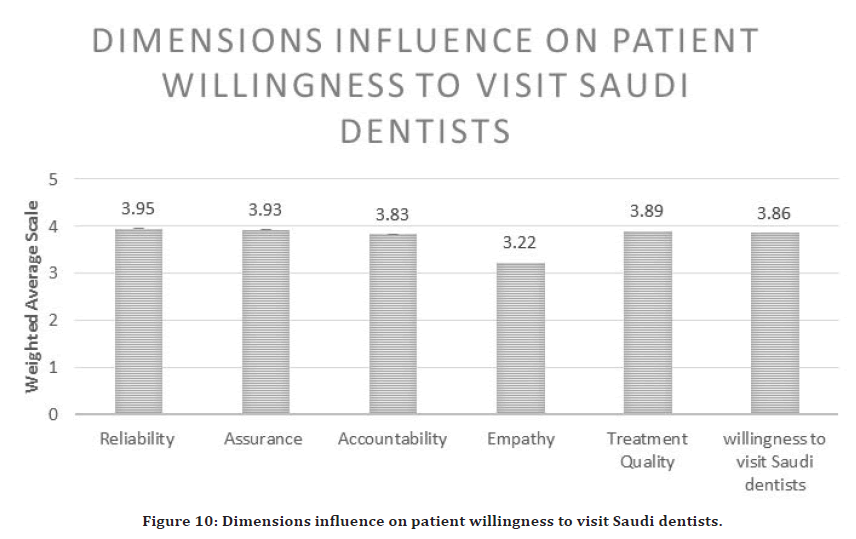
Figure 10. Dimensions influence on patient willingness to visit Saudi dentists.
| Gender | Reliability | Assurance | Accountability | Empathy | Treatment Quality | Satisfaction | Willingness to visit Saudi dentists |
|---|---|---|---|---|---|---|---|
| Male | |||||||
| Average Scale | 3.7 | 3.6 | 3.59 | 3.5 | 3.65 | 3.64 | 3.54 |
| Female | |||||||
| Average Scale | 3.8 | 3.86 | 3.6 | 3.5 | 3.68 | 4.74 | 3.8 |
| P-value | 0.59 | 0.31 | 0.96 | 1 | 0.89 | 0.65 | 0.2 |
Table 12: Dimension influence by gender.
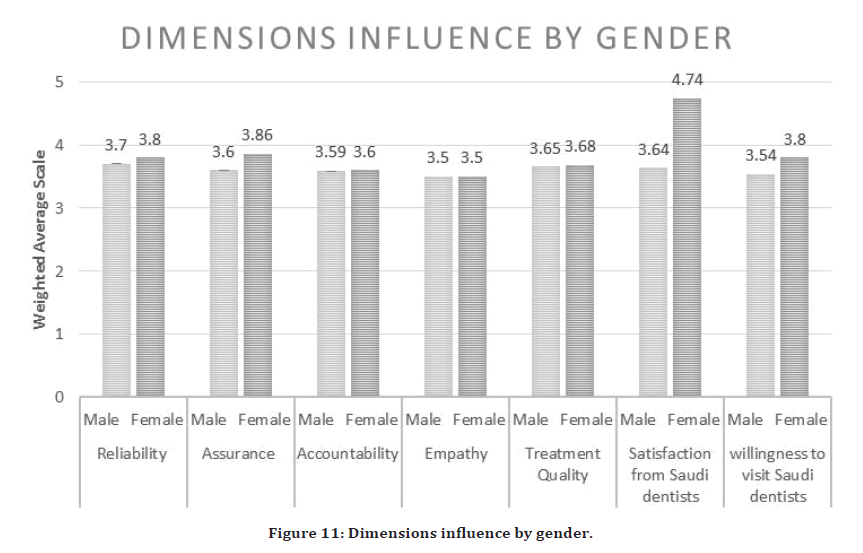
Figure 11. Dimensions influence by gender.
Discussion
Overall, the patients demonstrated agreement with most of the dimensions, which means Saudi dentists are welcomed by most patients and accepted by the community. Participants agreed with the reliability, assurance, accountability, and treatment quality of Saudi dentists, which was associated with patient satisfaction and willingness to visit these professionals.
The perceived empathy of Saudi dentists showed a significant influence on overall patient satisfaction and willingness to visit Saudi dentists. Saudi dentists must consider empathy to meet patient expectations. Patients may not be satisfied with their dental visit if they perceive the dentist lacks empathy, even if they got the best treatment and were confident in the dentist. Patients may change their dental office and dentist if they didn’t feel they provided adequate care and attention.
Empathy is an important factor in a healthy dentistpatient relationship. In another study, the Jefferson Scale of Physician Empathy (JSPE) was used to assess the empathy level of dental students. Educators were advised to adopt communication-teaching strategies to develop empathy and reduce the risk of declination [4]. Different measures have been used to assess empathy in undergraduate students. These results demonstrated the ability of these measures to support students based on feedback regarding their empathy [5].
Direct interventions to improve ethno cultural empathy in healthcare students showed significant improvements on the Scale of Ethno cultural Empathy [6]. Another study also showed a promising approach to improving dental students’ empathy by Person-Centered Care training, which was measured by the Toronto Empathy Questionnaire (TEQ) and Jefferson Scale of Physician Empathy (JSPE) [7]. Among all patients who participated in a psychological attitude questionnaire in Lebanon, 90% preferred doctors based on their empathy, followed by professionalism (87%), miscellaneous traits (86%), and academics (81%) [8]. Self-assessed empathy levels don’t correlate with patients’ assessments, and patients must be included in the assessment for optimal feedback [9].
The SERVQUAL questionnaire was used in Brazil. A high agreement level between patients and physicians was observed [10]. In 315 participants, all SERVQUAL dimensions were negative, and the quality of health service was unsatisfactory and required improvement [11].
Based on SERVQUAL dimensions, patient feedback revealed that hospitals must make adjustments to improve service quality [12]. The SERVQUAL model was valid, and its dimensions were linked to gender, education, and age. Empathy was revealed to be the most significant outpatient expectation in Western Saudi Arabia [13]. The use of the SERVQUAL model was relevant and the feedback from dental patients encouraged more doctor-patient engagement and communication [14].
Gender had no significant influence on any of the five dimensions or patient satisfaction and willingness to visit a Saudi dentist. The sample size difference between the two groups is large, which must be considered in future studies. The overall sample size must be increased in future studies to include a wide range of patients from all regions of the kingdom, including governmental and private sectors. These study results serve as an initial indicator of how dimensions and service quality can affect patient perception. Workshops and dental curricula must reflect these factors to improve Saudi dentistry.
Conclusions
Participants are in high agreement with the reliability, assurance, accountability, and treatment quality of Saudi dentists, while the empathy dimension showed a significant effect of participants’ perceptions of satisfaction and willingness to visit Saudi dentists.
References
- http://vision2030.gov.sa/ar
- Parasuraman A, Zeithaml Valarie A, Leonard L. SERVQUAL: A multiple-item scale for measuring consumer perceptions of service quality. J Retailing 1988; 64:12.
- Parasuraman A, Leonard L, Zeithaml Valarie A. Refinement and reassessment of SERVQUAL scale. J Retailing 1991; 67:420.
- Aggarwal VP, Garg R, Goyal N, et al. Exploring the missing link-empathy among dental students: An institutional cross-sectional survey. Dent Res J 2016; 13:419.
- Babar MG, Hasan SS, Yong WM, et al. Patients perceptions of dental students' empathic, person-centered care in a dental school clinic in Malaysia. J Dent Educ 2017; 81:404-412.
- Fleming BD, Thomas SE, Burnham WS, et al. Improving ethno cultural empathy in healthcare students through a targeted intervention. J Cult Divers 2015; 22:59-63.
- Rosenweig J, Blaizot A, Cougot N, et al. Effect of a person-centered course on the empathic ability of dental students. J Dent Educ 2016; 80:1337-1348.
- Ayoub F, Fares Y, Fares J. The psychological attitude of patients toward health practitioners in Lebanon. N Am J Med Sci 2015; 7:452-458.
- Bernardo MO, Cecillio-Fernandes D, Costa P, et al. Physicians self-assessed empathy levels do not correlate with patients' assessments. PLOS One 2018; 13.
- Mendes IAC, Trevizan MA, de Godoy S, et al. Expectations and perceptions of clients concerning the quality of care provided at a Brazilian hospital facility. Appl Nurs Res 2018; 39:211-216.
- Teshnizi SH, Aghamolaei T, Kahnouji K, et al. Assessing quality of health services with the SERVQUAL model in Iran. A systematic review and meta-analysis. Int J Qual Health Care 2018; 30:82-89.
- Fan LH, Gao L, Liu X, et al. Patients' perceptions of service quality in China: An investigation using the SERVQUAL model. PLoS One 2017; 12.
- Alraihi KJ, Latif SA. Evaluation of outpatient service quality in Eastern Saudi Arabia. Patient's expectations and perceptions. Saudi Med J 2016; 37:420-428.
- Rocha J, Pinto A, Batista M, et al. The importance of the evaluation of expectations and perceptions to improve the dental service quality. Int J Health Care Qual Assur 2017; 30:568-576.
Indexed at, Google Scholar, Cross Ref
Indexed at, Google Scholar, Cross Ref
Indexed at, Google Scholar, Cross Ref
Indexed at, Google Scholar, Cross Ref
Indexed at, Google Scholar, Cross Ref
Indexed at, Google Scholar, Cross Ref
Indexed at, Google Scholar, Cross Ref
Indexed at, Google Scholar, Cross Ref
Author Info
Department of Periodontology, Faculty of Dentistry, King Abdulaziz University, Jeddah, Saudi ArabiaReceived: 13-Jul-2022, Manuscript No. jrmds-22-71867; , Pre QC No. jrmds-22-71867(PQ); Editor assigned: 15-Jul-2022, Pre QC No. jrmds-22-71867(PQ); Reviewed: 29-Jul-2022, QC No. jrmds-22-71867(Q); Revised: 03-Aug-2022, Manuscript No. jrmds-22-71867(R); Published: 10-Aug-2022
